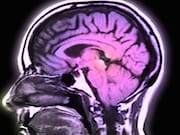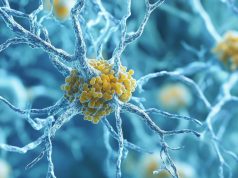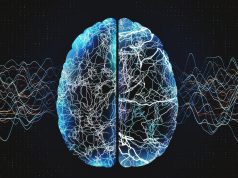Leaky brain capillaries tied to cognitive dysfunction, independent of protein markers for dementia
TUESDAY, Jan. 15, 2019 (HealthDay News) — Breakdown of the blood-brain barrier (BBB) may be an early biomarker of cognitive dysfunction, independent of amyloid or tau marker status, according to a study published online Jan. 14 in Nature Medicine.
Using dynamic contrast-enhanced magnetic resonance imaging, Daniel A. Nation, Ph.D., from the University of Southern California Keck School of Medicine in Los Angeles, and colleagues studied brain capillary damage in 161 older adults using a novel cerebrospinal fluid (CSF) biomarker of BBB-associated capillary mural cell pericyte, a soluble platelet-derived growth factor receptor-β (sPDGFRβ), and regional BBB permeability. Cognitive function was also assessed.
The researchers noted a significant positive correlation between sPDGFRβ and classical biomarkers of BBB breakdown, including the CSF to plasma albumin ratio and CSF fibrinogen. Higher CSF sPDGFRβ remained a significant predictor of cognitive impairment after statistically controlling for CSF amyloid-β (Aβ) and tau markers. Furthermore, CSF sPDGFRβ increased with more advanced Clinical Dementia Rating score impairment (CDR, 1 > 0.5 > 0), suggesting progressive damage of pericytes with cognitive dysfunction. Using imaging analysis and controlling for CSF Aβ and tau markers, increased regional BBB permeability in the hippocampus, parahippocampal gyrus, and hippocampus subfields remained a significant predictor of cognitive impairment.
“If the blood-brain barrier is not working properly, then there is the potential for damage,” a coauthor said in a statement. “It suggests the vessels aren’t properly providing the nutrients and blood flow that the neurons need. And you have the possibility of toxic proteins getting in.”
Copyright © 2019 HealthDay. All rights reserved.








